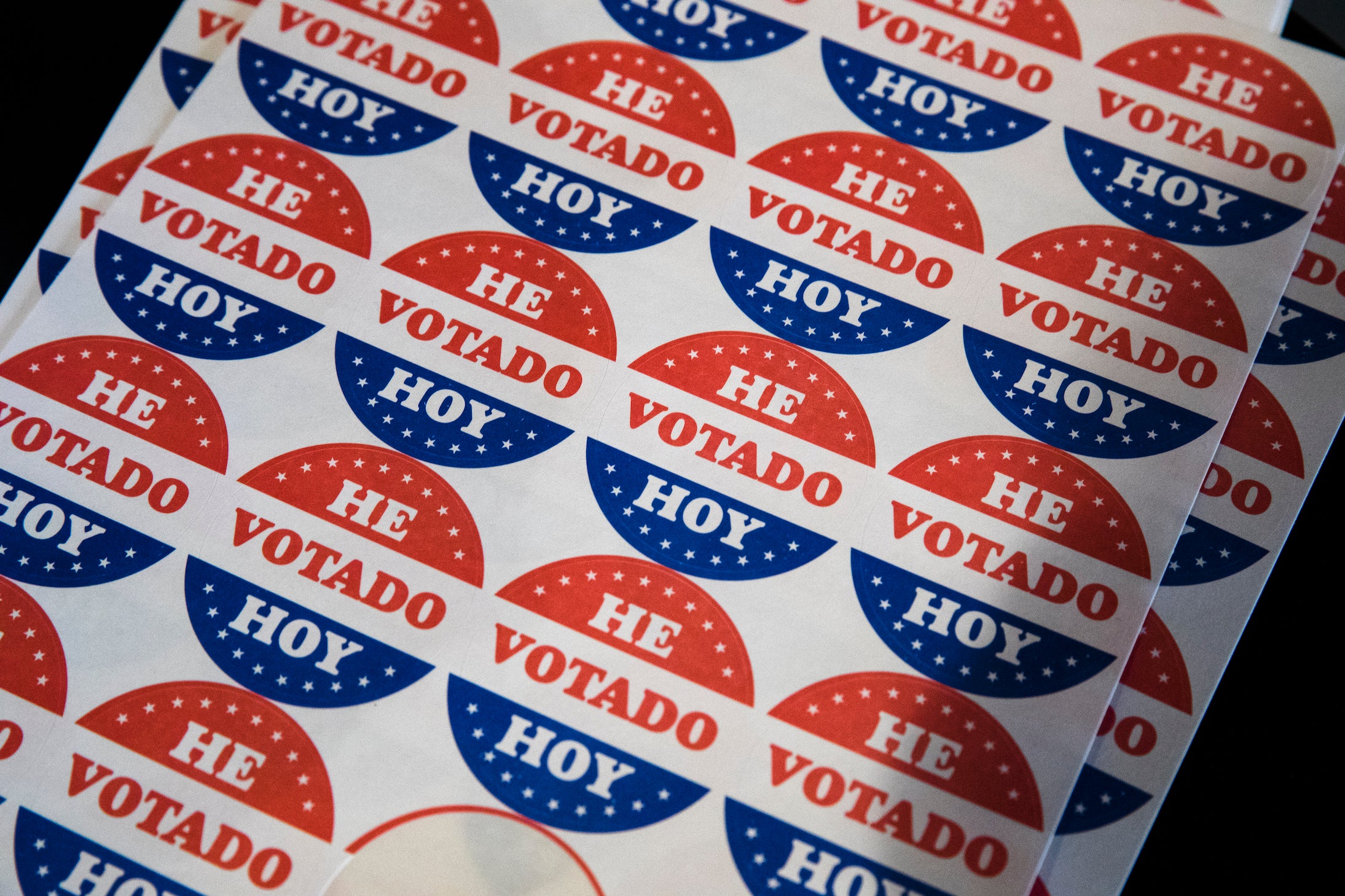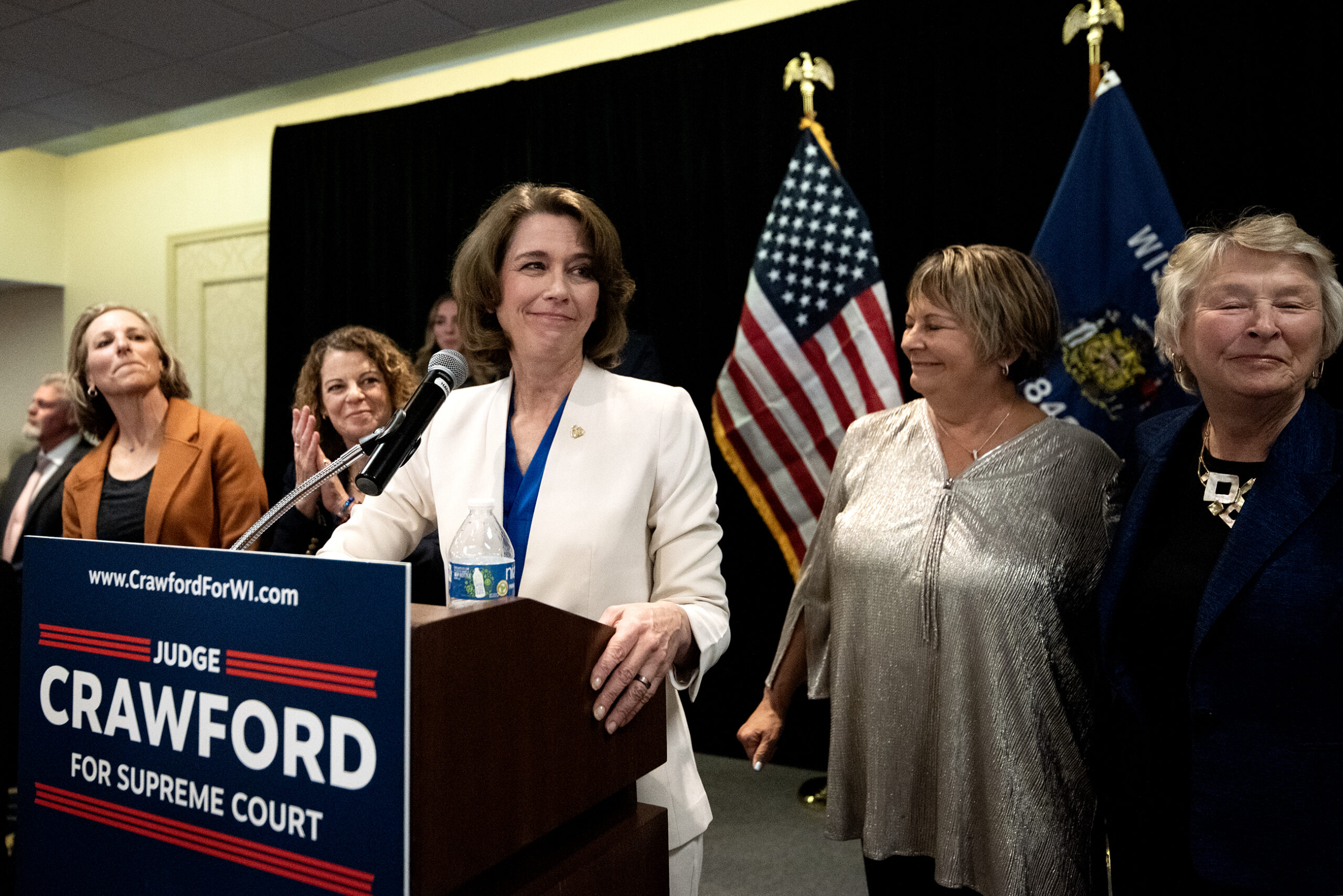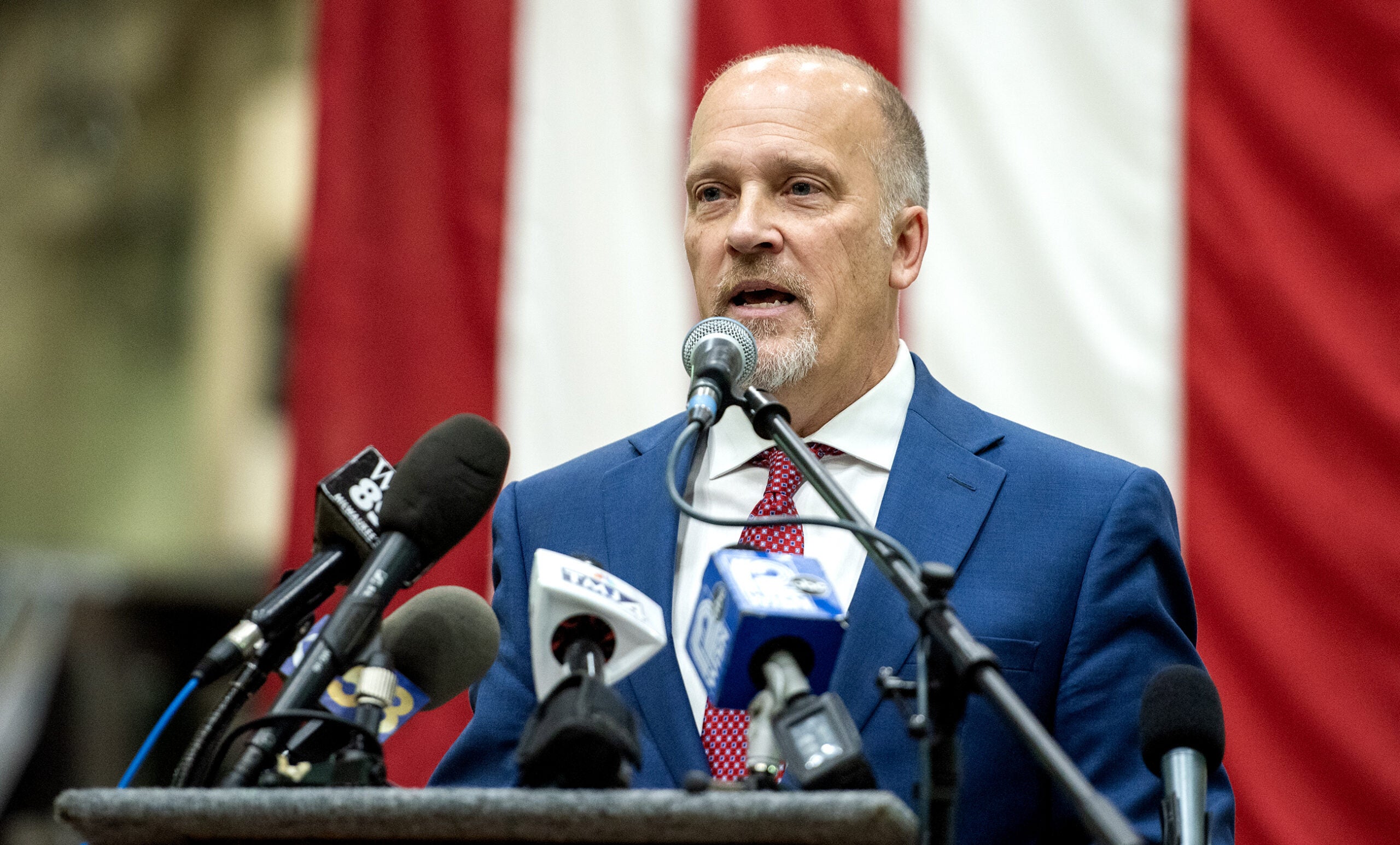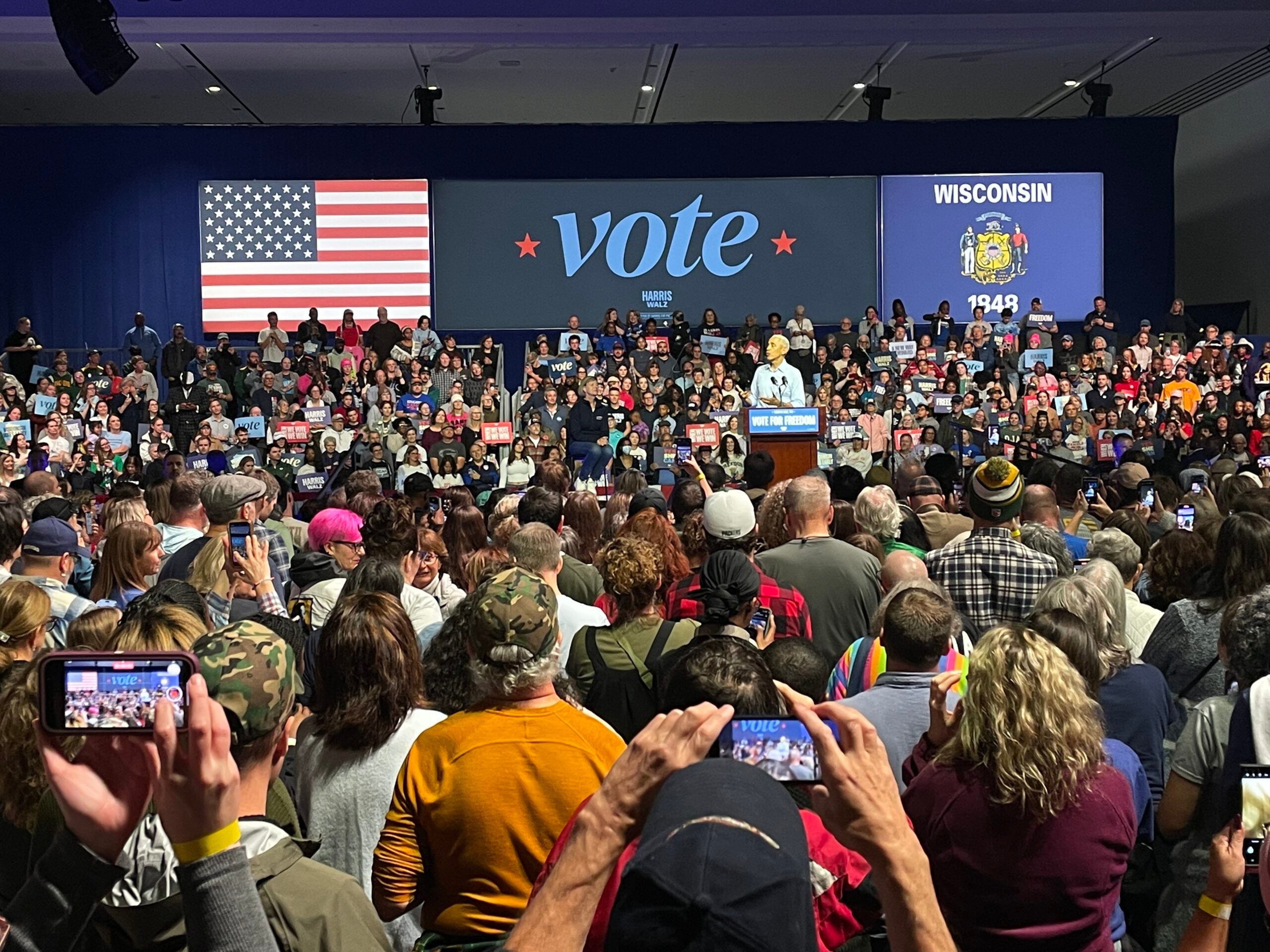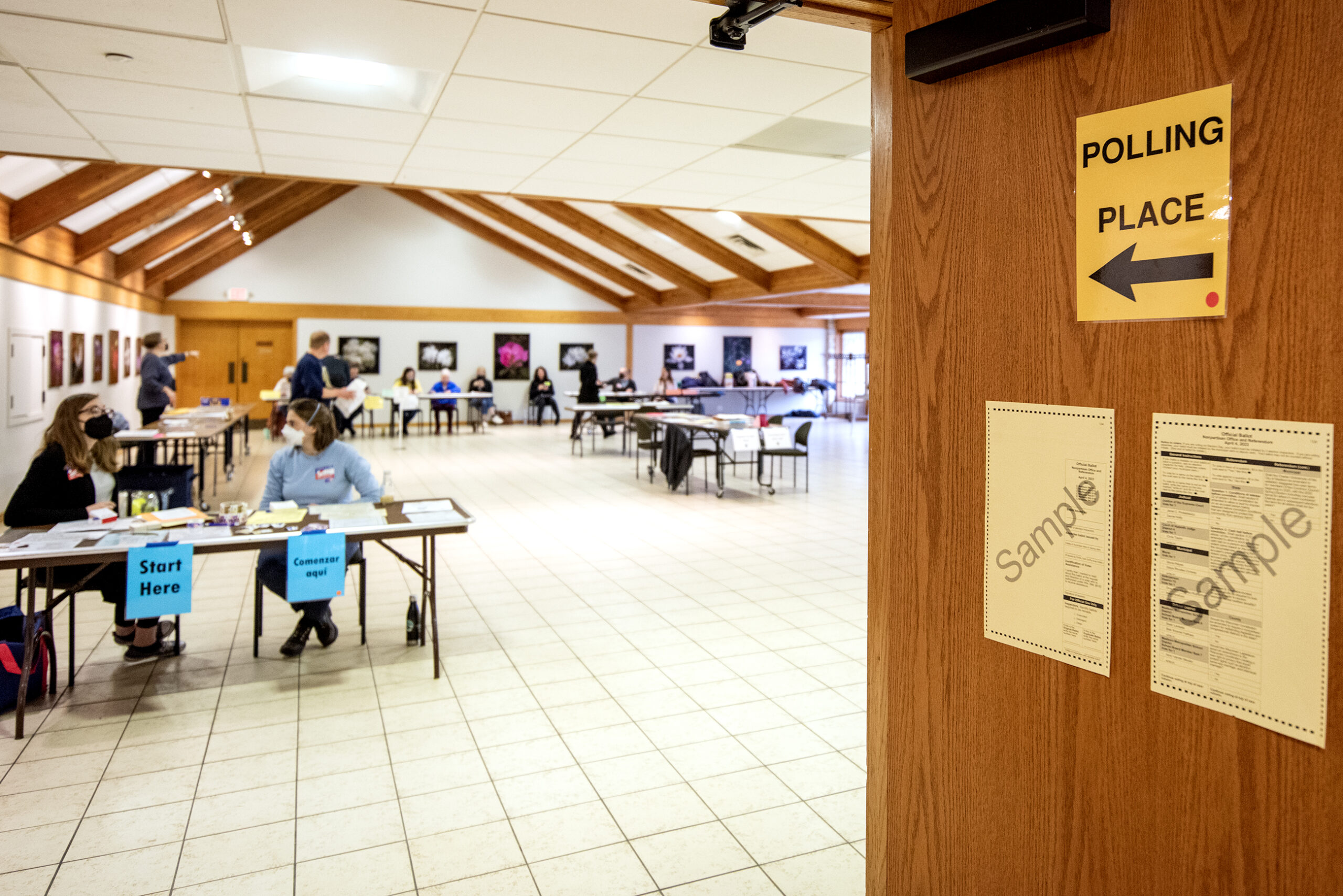The Republican Party of Wisconsin is suing the city of Milwaukee’s mayor and election commission, demanding they release communications from city employees about a privately-funded get-out-the-vote effort.
Republican leaders claim the mobilization effort is meant to help Democrats, and argue using city resources to support the partisan campaign would be inappropriate, if not illegal.
In a press conference on Sept. 12, Mayor Cavalier Johnson announced his support for “Milwaukee Votes 2022,” a privately-funded campaign to boost voter turnout in the city through door-to-door canvassing. The city won’t lead or fund the work, but Johnson said they’ll assist by adding a website widget to some pages of milwaukee.gov.
Stay informed on the latest news
Sign up for WPR’s email newsletter.
According to Johnson, the campaign is non-partisan.
“I’m not asking anybody to cast their ballots for one party or another or one candidate or another,” he said. “What I’m asking is for people to participate in our process and to make sure that their voice is heard at the ballot box.”
But Republicans quickly seized on Johnson’s words of support, calling the effort a partisan ploy to influence the election.
“The City of Milwaukee’s promotion and coordination of potentially illegal activities under the guise of canvassing is why Wisconsin voters have lost confidence in our elections. It is inappropriate for any municipality to support a (get-out-the-vote) campaign,” Republican leaders said in a statement the next day, announcing an open records request Assembly Speaker Robin Vos and state Sen. Duey Strobel filed with the city.
The request demanded that city officials release all communications between administrators and GPS Impact, a communications firm involved in the effort. According to its website, the firm helps “Democrats, progressive organizations and initiatives, and elected officials win in red states.”
In the statement, Republican leaders demanded that the city immediately stop working with GPS Impact “in their efforts to only engage with and turn out certain voters.”
After two weeks passed without the city releasing the information they requested, the Republican Party of Wisconsin and the National Republican Senatorial Committee filed this week’s lawsuit.
“The Defendants’ failure to swiftly respond to the requests and produce the requested records, at the very least, casts a dark cloud over the City’s administration of the election and its election-related efforts, which only risks proliferating public concerns about the upcoming election by withholding or delaying records pertinent to an extremely time sensitive issue,” the lawsuit said.
But the mayor’s office hasn’t broken any laws, Communications Director Jeff Fleming said in a statement, adding that dozens of staff members have to search their emails, texts and other communications in order to gather all the requested records.
“The office has expedited the response, and it is surprising a lawsuit was filed so quickly,” Fleming said. “The fact that the Republicans have rushed out a news release on a lawsuit – based on a records request submitted just days ago – suggests this is more about political posturing than it is about a substantive legal issue.”
The lawsuit stems from worries that Democrats in Milwaukee are trying to “tip the scales” for themselves in the November election, Republican Party of Wisconsin Executive Director Mark Jefferson said in a statement.
“Government’s role in elections must be to ensure fairness and transparency, not actively pursue desired outcomes,” he said, “and we will insist that election laws be followed.”
Underlying the lawsuit is decades of tension between Wisconsin Republicans and Milwaukee, said Anthony Chergosky, a political science professor at UW-La Crosse. He said that tension is rooted in the state’s voter makeup.
“It would be one thing, if statewide elections in Wisconsin were rather lopsided, but because statewide elections are so competitive, they can be decided by a few hundred votes here and there, a few thousand votes here and there,” Chergosky said. “Any movement on either side in terms of voter mobilization could make the difference.”
Because of the city’s political leaning, he said mobilization efforts in Milwaukee are inevitably seen as partisan.
In the August primary, 75.5 percent of Milwaukee voters were Democrats and only 23.8 percent were Republicans. Any efforts to increase turnout in the city, Chergosky said, will inherently lean Democratic.
Voter turnout in Milwaukee has historically been inconsistent, he said, so successfully mobilizing voters in the city would be a “game changer.” That leaves Republicans’ rural base vulnerable to being overwhelmed by a jump in urban votes, he said.
“Republicans can run up these huge margins in all of these rural communities throughout the state,” he said. “And then a huge turnout in Milwaukee could wipe out those margins in one swoop. So the stakes are just enormous.”
Wisconsin Public Radio, © Copyright 2025, Board of Regents of the University of Wisconsin System and Wisconsin Educational Communications Board.

